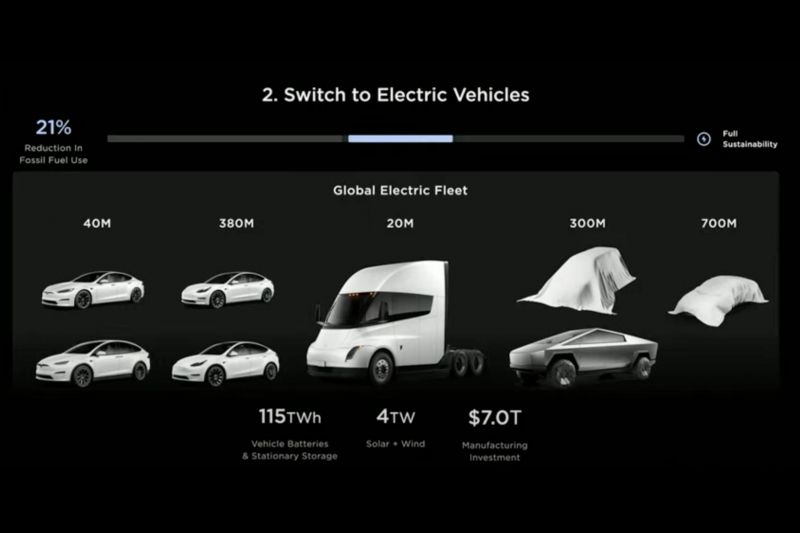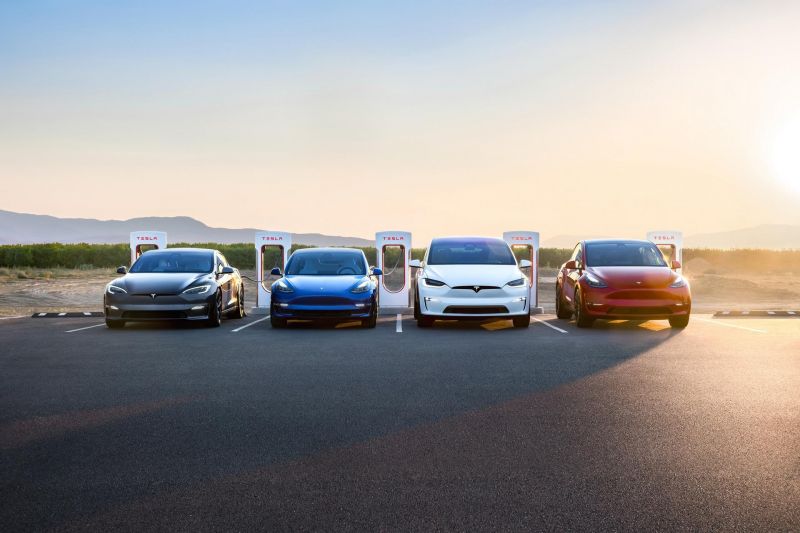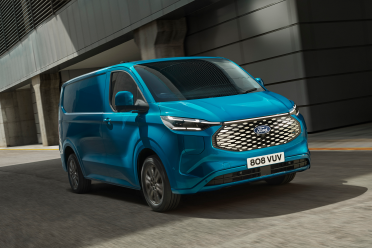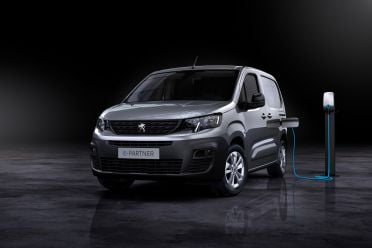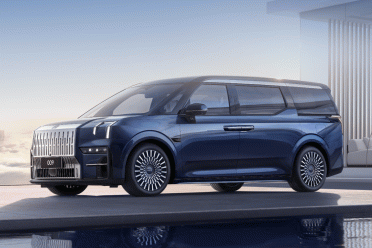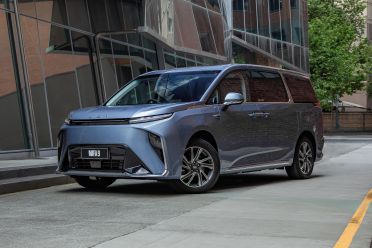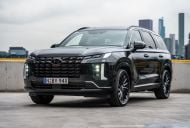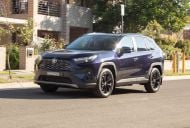Tesla’s model range could swell to as many as 10 vehicles by 2030 as it targets 20 million annual sales, but its CEO has cautioned against going variant-mad.
“Not that many. Really, 10, I don’t know, not that many,” said Tesla CEO Elon Musk when asked at an Investor Day Q&A how many vehicles the company would need to reach that annual volume target.
On one slide during the Investor Day presentation, two vehicles are depicted covered in sheets. One appears to be a van or people mover, the other some kind of passenger vehicle.
Tesla won’t go chasing niches as it expands its model line-up, however.
“What’s happened with conventional cars is people have run out of things to do… they just end up reshuffling the deck and you have pretty much the same,” said Mr Musk.
“I mean, how many variants of car are there on the road? It was like hundreds. But are they good variants? No, mostly not. They’re just variants for the sake of variants.
“Look at how things have converged with the phone: there used to be hundreds of flip phones, now what do we have? It’d be like that.”
The brand currently offers the mid-sized Model 3 sedan, large Model S liftback, and Model Y and Model X mid-sized and large crossovers.
The Cybertruck ute is set to enter production this year, while a revived Roadster has been perennially in the works.
Tesla wouldn’t shed light on what its next-generation models will look like, but it would appear the brand is working on a model to slot in under the Model 3. Its platform will also be used for an upcoming robotaxi.
“Maybe Tesla should make a highly configurable Robovan for people & cargo?” Mr Musk mused on Twitter last year.
As far back as 2016, Mr Musk was even suggesting his company could spin off a van from a pickup platform.
With its core foursome plus the Cybertruck, Robovan, Roadster and upcoming entry-level model, that’s eight vehicles in total.
Should Tesla introduce an electric van or people mover, it will be late to the market. Both segments are heating up, even in Australia.
Stellantis is the leader in the European electric commercial vehicle space, offering electric vans across multiple segments and brands, though the Peugeot e-Partner is thus far the only model confirmed for Australia.
Ford is introducing its E-Transit van here this year, with an E-Transit Custom following in 2024, while Mercedes-Benz is also in the midst of rolling out a range of electric vans and people movers.
Renault was an early entrant to the local electric van segment with its Kangoo, and could follow it up with an E-Tech Electric version of the larger Trafic. An electric Master has already been confirmed.
The Chinese are also making significant inroads. The LDV eDeliver 9 and MIFA 9 have just launched, while back home Geely’s Zeekr brand has revealed a palatial people mover called the 009.

